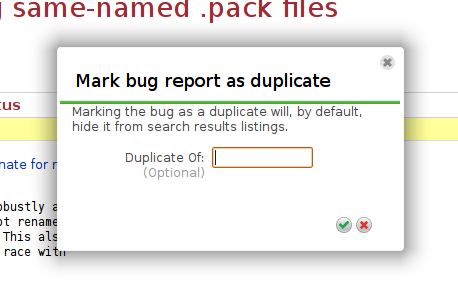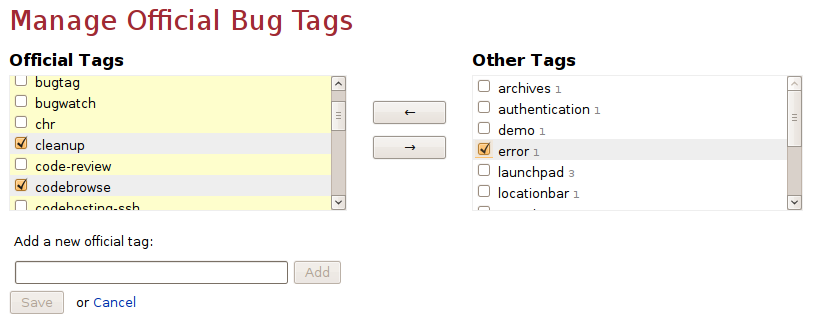Making bug migration that bit easier
Wednesday, June 17th, 2009Greetings, readers!
For a while now I’ve been the Launchpad developer in charge of helping users of other bug trackers migrate their projects to Launchpad. We do this reasonably regularly for users of Trac, SourceForge and Bugzilla, and we’re always open to helping people migrate from other solutions should they wish to.
Several months back, the Elisa project migrated from Trac to Launchpad. In doing so, they wrote a script to take their Trac database and convert it to the Launchpad bug interchange format, which is an XML schema that we use for bug imports (you give us an XML document containing your bugs that conforms to the interchange format schema and we can then import it into Launchpad for you).
More recently, we realised that we were getting quite a few requests from Trac users for help with migration. We went back to the Elisa developers and asked if they’d be willing to let us have their migration tool under the GPL so that we could share it with everyone. They kindly said yes, passed the code to us under GPLv3, and yesterday I made it available on Launchpad as the Trac to Launchpad Migrator project.
It’s a bit rough around the edges at the moment and needs some documentation, but more than anything else it needs people to test it and use it so that we can make migrating from Trac to Launchpad as smooth as possible.
Update: Matthew’s written a blog post about our bug import format.





